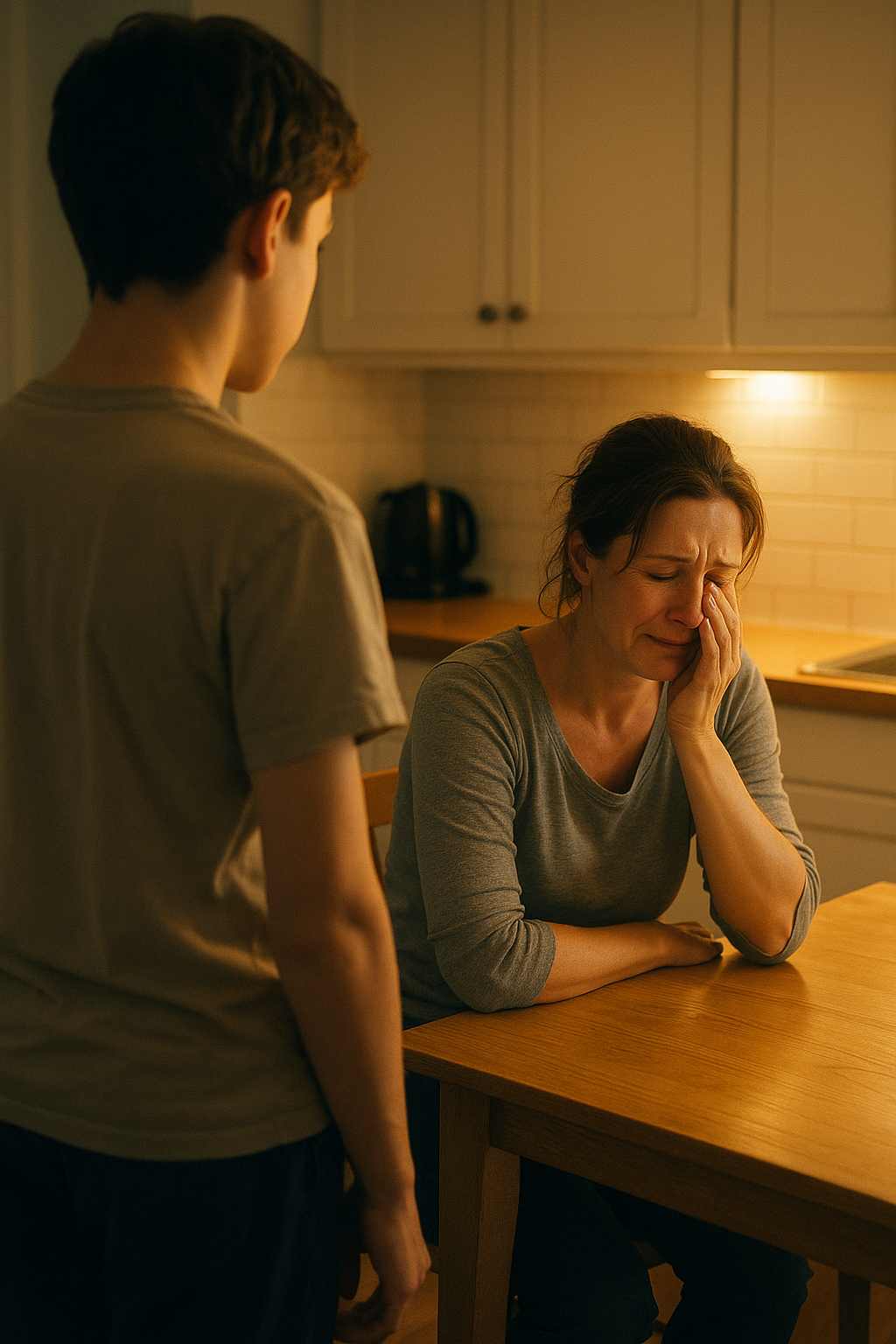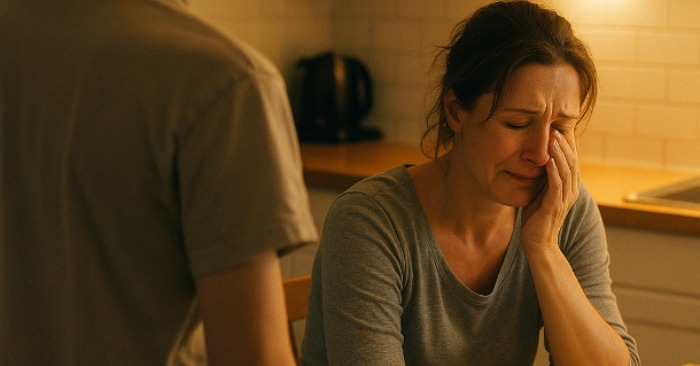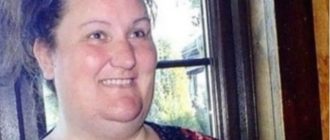The night it happened felt like any other. Dinner had come and gone, dishes were stacked in the sink, and the house had gone quiet. My siblings were already asleep, their soft breathing echoing faintly down the hallway. My dad was working late again, and the only sound left was the hum of the refrigerator and the occasional creak of the old wooden floorboards.
I padded into the kitchen, half-asleep, searching for a glass of water. That’s when I noticed something that froze me in place.
In the corner of the kitchen, bathed in the dim yellow glow of the overhead light, stood my mom. Her back was to me, one hand braced against the counter, the other covering her mouth as though she was trying to muffle the sound. But she couldn’t hide it completely. Her shoulders trembled, and the faint sound of her sobs filled the silence.
I had never seen her like that. My mom — the one who always smiled through everything, the one who made birthdays magical, who pretended not to be tired even after working all day — was crying. And not just a tear or two. She was unraveling.
I froze. I didn’t know if I should walk away and pretend I hadn’t seen, or if I should step forward. A part of me thought maybe she wanted to be alone, that I wasn’t supposed to intrude on whatever storm she was weathering.
But something inside me — maybe love, maybe fear — pushed me forward. My voice came out small:
“Mom?”
She flinched, straightened quickly, and turned. Her eyes were red, her cheeks wet, but she tried to force a smile. “It’s nothing, sweetheart. Go back to bed.”
But I couldn’t.
I stepped closer, the sound of my bare feet against the cool tile making her wince as if I was catching her in something forbidden. “Why are you crying?” I asked.
For a moment, I thought she would shut down completely. Her lips parted, then closed. She shook her head, rubbed her eyes, and whispered, “Moms aren’t supposed to cry in front of their kids.”
But then, something shifted. Maybe she realized I wasn’t going to leave, or maybe she just couldn’t keep the walls up any longer. She pulled out one of the kitchen chairs, sat down heavily, and motioned for me to sit beside her.
What she told me that night peeled back layers I had never seen before. She admitted that she often felt invisible. That all the little things she did — cleaning the house, paying the bills on time, making sure homework was done and clothes were washed — seemed to vanish into thin air.
“I love you all more than anything,” she said, her voice breaking, “but some days it feels like I’m pouring from an empty cup. I give and give, and I wonder if anyone even notices.”
I felt my throat tighten. Until that moment, I had never stopped to consider that my mom was more than just… mom. That she was a woman with her own battles, her own exhaustion, her own breaking points.
As she spoke, my mind started flashing through memories: her staying up late sewing a costume for a school play, even though she had to be up early for work. The times she gave me the last piece of pie and pretended she wasn’t hungry. The quiet sighs I sometimes heard behind her closed bedroom door after long days.
All those things I had taken for granted suddenly hit me like a wave. She wasn’t just strong — she had been silently carrying more than I had ever imagined.
I reached across the table and took her hand. “You don’t have to be strong all the time,” I said. My voice trembled, but I meant every word. “You’ve been strong for all of us. Let us be strong for you, too.”
She looked at me then — really looked at me — and I saw something change in her eyes. Relief. Not because I had solved anything, but because, for once, she didn’t have to pretend.
That night, after she went to bed, I lay awake replaying everything. It was the first time I realized that parents aren’t superheroes. They’re human — fragile, tired, sometimes lonely.
The next morning, I noticed little things I had never paid attention to before: the dark circles under her eyes, the way she massaged her shoulders after cooking, the quiet way she picked up after everyone without complaint. And I made a choice: to notice, to help, to thank her.
It wasn’t about grand gestures. Sometimes it was just hugging her without a reason, or telling her dinner tasted amazing, or helping fold laundry without being asked. Small things — but they mattered.
Years later, I still think about that night in the kitchen. The dim light, the sound of her sobs, the way she finally let me see behind the mask. It was the night I stopped seeing her only as “Mom” and started seeing her as a person — a woman with her own hopes, fears, and limits.
And it changed me. It made me softer, more aware, more grateful.
Sometimes the people who look the strongest are the ones who most need someone to say, “I see you. You matter. You’re not alone.”







